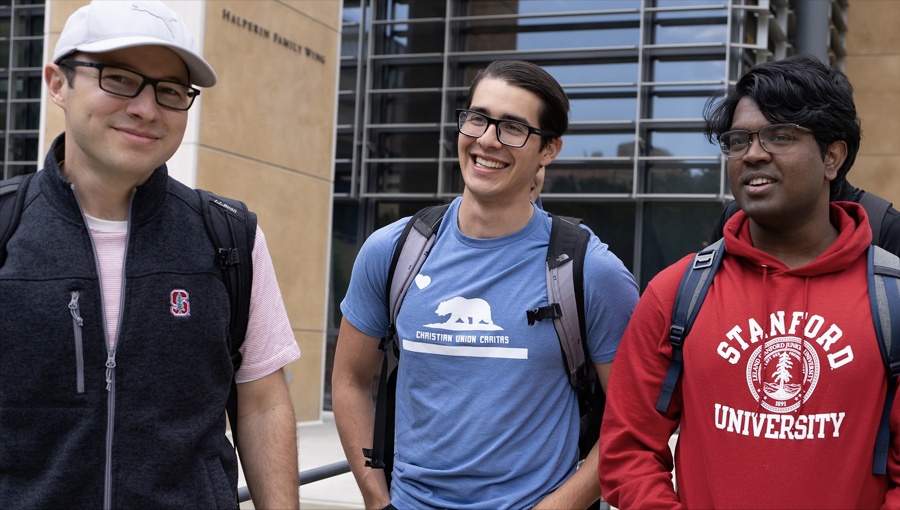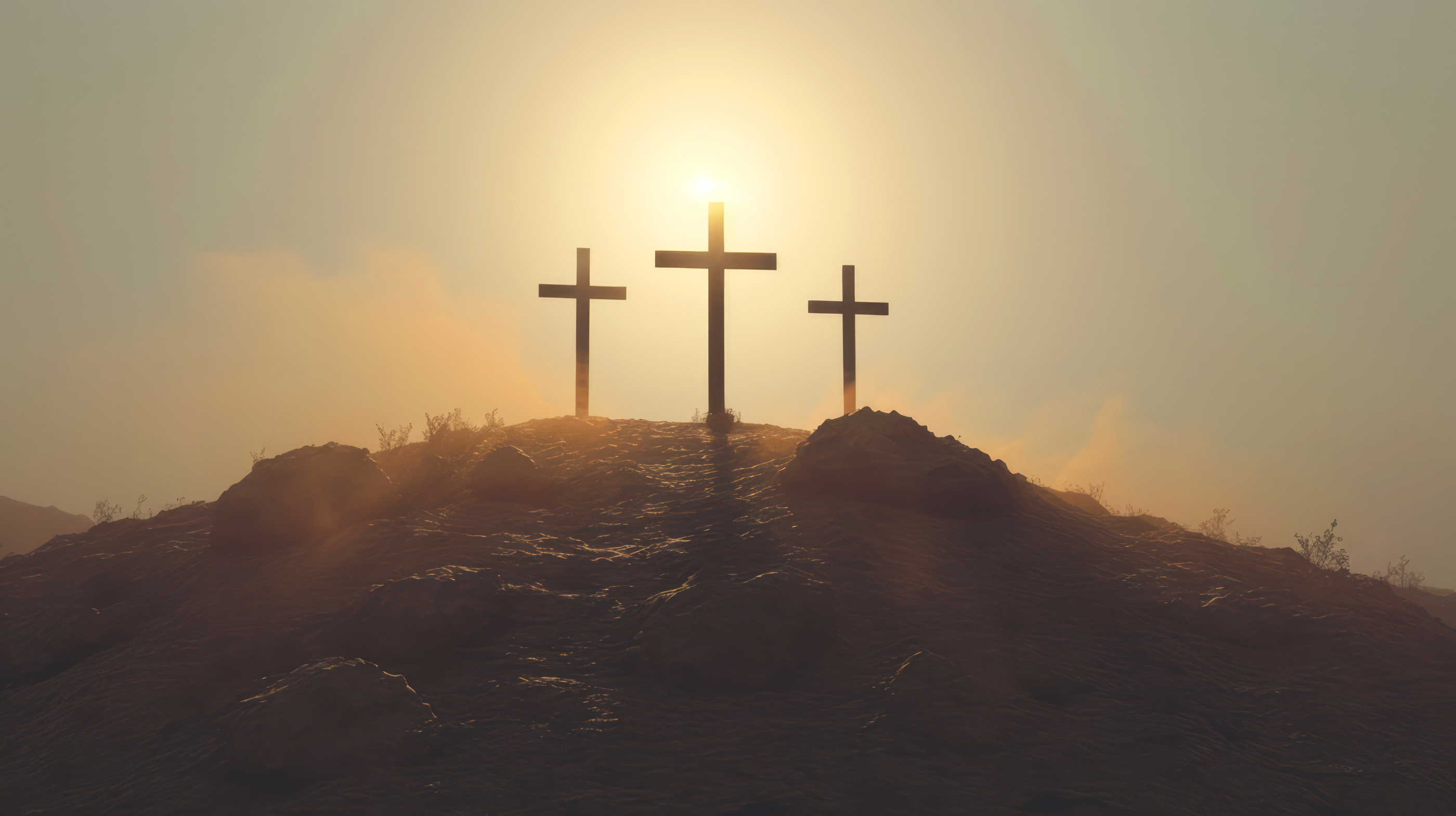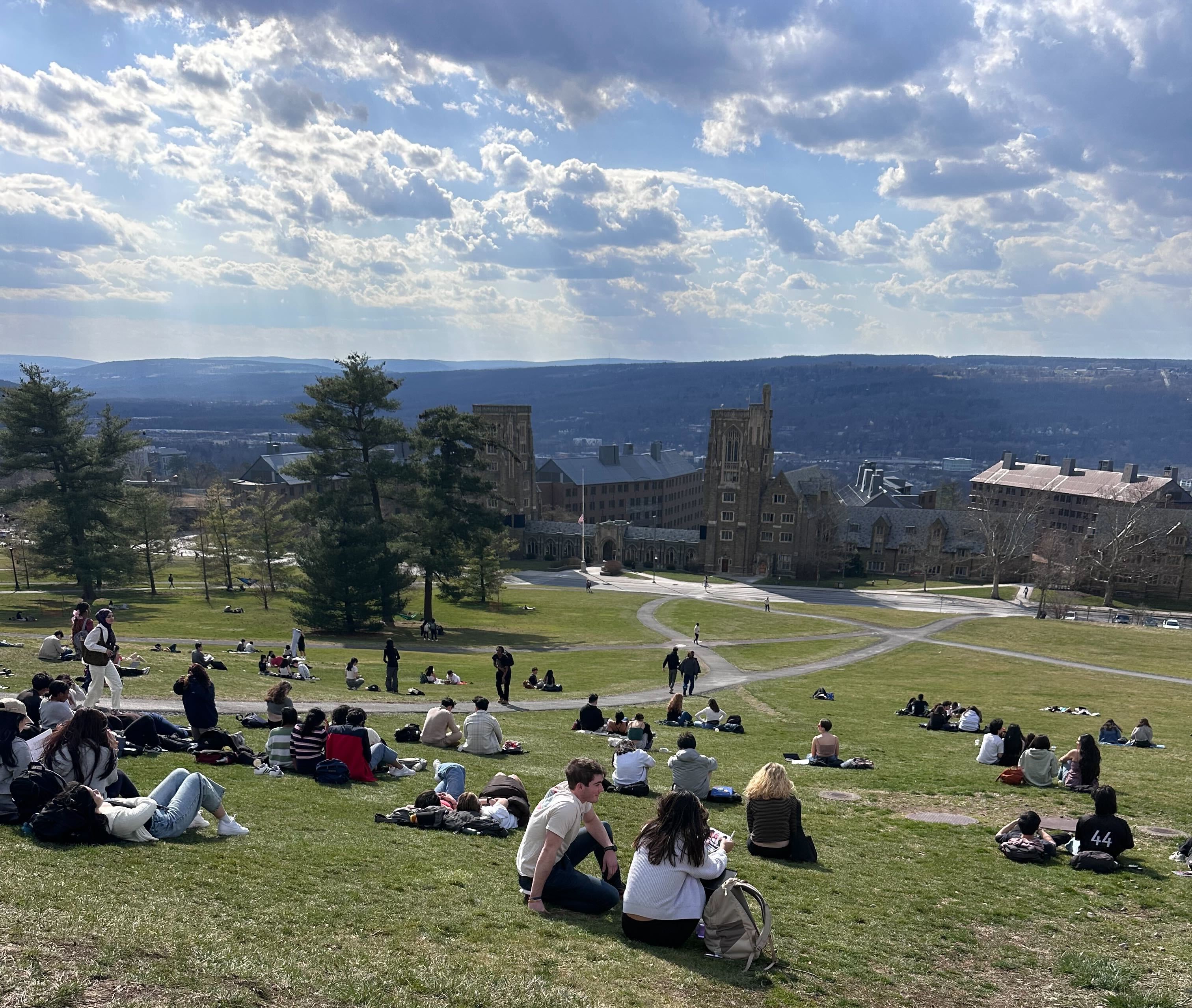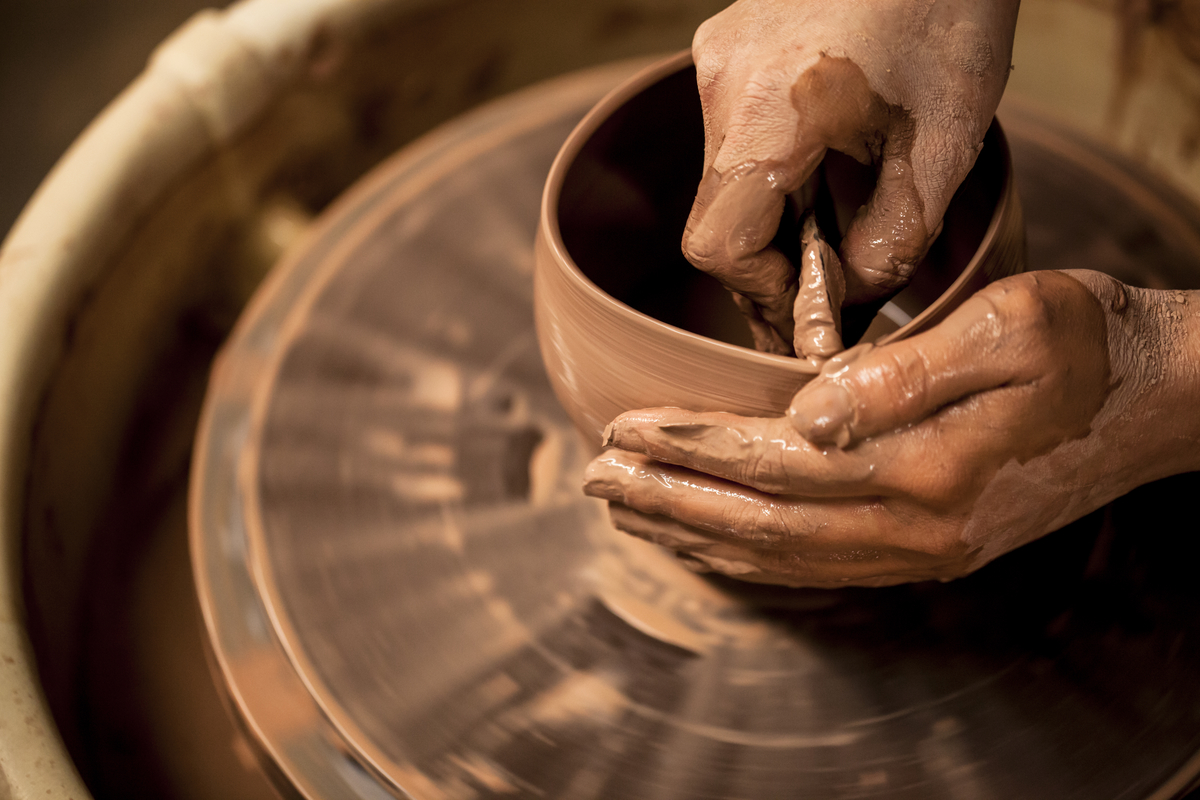Christian Union Event Features Geneticist, Theologian
By Tom Campisi, Managing Editor
Christian Union at Brown recently hosted a forum that examined the uniqueness of humanity.
“Are We More than Our Genes: A Geneticist and a Theologian Discuss Human Origins and Identity” was held on December 4 at Macmillan Hall. Approximately 200 students, many from the scientific community, attended the event, which featured Dr. Praveen Sethupathy, associate professor in the Department of Biomedical Sciences at Cornell University, and Dr. J. Richard Middleton, Professor of Biblical Worldview and Exegesis at Northeastern Seminary. Dr. Richard Bungiro, Senior Lecturer in Molecular Microbiology and Immunology at Brown and a self-described atheist, served as moderator.
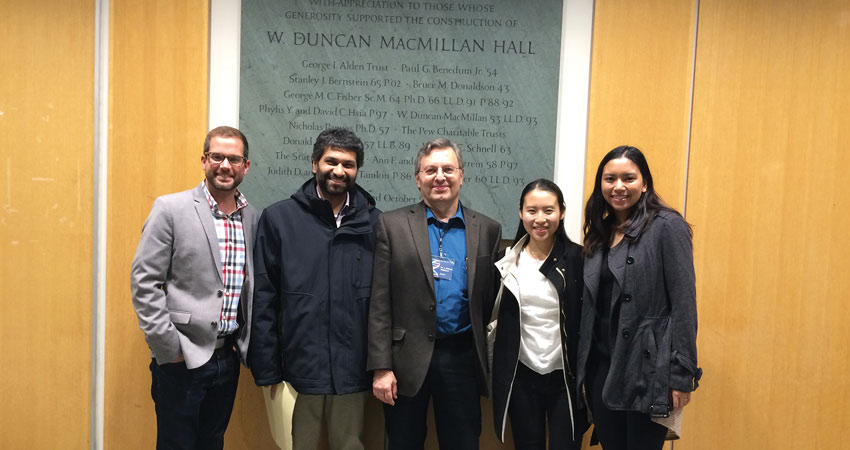
“Our hope was that this event would not only encourage Christian students on campus, but provide a space for non-Christians to consider the real possibility that Christianity is intellectually viable,” said Justin Doyle, a Christian Union ministry fellow at Brown. “Praveen’s focus was on science, while Richard labored to provide a way forward in navigating emerging science with the study of Scripture.”
{tweetme}Sethupathy and Middleton approached their lectures from different angles, but both landed in the book of Genesis to reveal what sets apart humans. Imago Dei, being created in the image of God, is the answer, they said.{/tweetme}
Sethupathy, a Cornell alumnus who earned a Ph.D. in genomics at the University of Pennsylvania, completed a post-doctoral fellowship at the National Human Genome Research Institute under the mentorship of Dr. Francis Collins, a preeminent physician and geneticist who is also a Christian. He later worked at the University of North Carolina at Chapel Hill as an assistant professor in the Department of Genetics.
“On the one hand, I am firmly committed to the empirical pursuit of knowledge, making observations, and gathering tangible data to test my hypothesis. On the other hand, I am also a person of deep faith in Christ and in truths I believe science alone cannot illuminate,” he said. “I’ve committed my life to both—science and faith do not occupy separate parts of my brain.”
Sethupathy said a purely scientific viewpoint does not provide a clear answer in regards to what makes us uniquely human. He went on to explain the challenges associated with relying solely on behavioral, anatomical, cellular, and genetic data.
“I am cautious of using genetics alone to define humanity,” he said.
For Sethupathy, reconciliation comes when he asks, “What does my faith have to say about this question?”
The imago dei account of Creation in Genesis 1 provides the answer.
“We are the only ones made in the image of God,” he said. “God sets humans apart. It is clear from the context of Scripture how this is not a biological distinction, but a functional one. We are called to represent and reflect God. Biological evolution implies no larger purpose or meaning in our lives.”
Middleton, a biblical scholar, is widely published in religious periodicals and journals and is the author of four books, including A New Heaven and a New Earth: Reclaiming Biblical Eschatology (Baker Academic, 2014) and The Liberating Image: The Imago Dei in Genesis 1(Brazos, 2005). He is a former president of the Canadian Evangelical Theological Association.
“What it means to be human in the Bible is not limited to scientific questions,” Middleton said. “The biblical texts certainly do not try to teach science, but they can prime us theologically to be open to what evolution science tells us about ourselves…”
Middleton talked about evolution theory and verses in Genesis, Psalms, and Job, noting how the ultimate vision was mankind being created in God’s image or likeness.
“What makes us unique is an ethical calling,” he said. “We are to manifest God’s image and presence in all we do on earth. It’s a priestly call, not a secular one. All we do in service is offered to the Creator.”
Emily Ma ’18, a member of the student leadership team that organized the event, was pleased with the buzz it created on campus.
“I’ve had both Christians and non-Christians comment on how the discussion was very interesting, well-done, and how they were exposed to new perspectives on the topic of origins and identity,” she said.
Sethupathy’s statement that “science and faith don’t occupy separate spheres of my identity” helped normalize the discussion of faith within a more scientific-minded audience, she noted. After the forum, Christian Union at Brown continued to follow up with attendees, offering Bible study opportunities and more resources.
“We continue to pray that the Spirit of God brings many students to faith through the event, whether that’s due to the actual event or the conversations that have ensued since that night,” said Doyle. “No matter the results we see with our own eyes, we give praise and glory to our Father in heaven who, we know, used this event to reach students with the hope of the Gospel!




